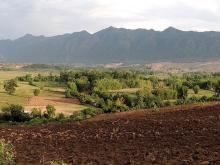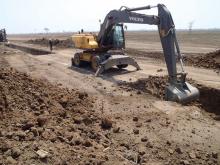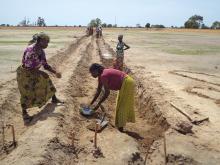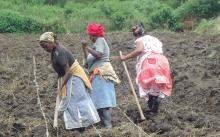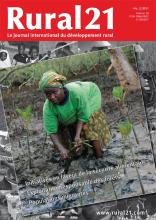Land Library
Welcome to the Land Portal Library. Explore our vast collection of open-access resources (over 74,000) including reports, journal articles, research papers, peer-reviewed publications, legal documents, videos and much more.
/ library resources
Showing items 1 through 9 of 17.Secure tenure of farming and forest land is increasingly recognised as an important factor of household food security and nutritional status. This is borne out by a study by the Laotian Land Issues Working Group.
The buying up of farmland by international investors is viewed highly critically. However, sweeping judgements could be inappropriate, as our author demonstrates with survey results from Ethiopia and Uganda.
On the 11th May 2012, the Committee on World Food Security of the United Nations adopted the Voluntary Guidelines on the Responsible Governance of Tenure of Land, Fisheries and Forests (VGGT).
A project in Burkina Faso has given a clear demonstration of what supporting family farms can achieve in terms of poverty alleviation and rural development. One important success factor was the transfer of land to farmers, accompanied by a secure land-tenure policy adapted to their needs.
Increasing prices for agricultural commodities offer a historic opportunity to intensify production systems for small-scale farmers in many developing countries.
The livelihoods of many rural dwellers are dependent on having secure and equitable access to land. Tenure security is also a prerequisite for sustainable land management. The massive interest of commercial investors has increased the pressure on land globally.
Liberia’s government seeks to put greater emphasis on integrated cash/food crop systems with broad-based farmer participation. However, shortcomings in regulations on land transactions could threaten livelihoods in what is already a vulnerable country.
Pour de nombreux pays, la mise en place d’une politique rationnelle de gestion des forêts est une tâche difficile.
Au Burkina Faso, le potentiel en terres arables à vocation agricole est épuisé. À l’avenir, la population en rapide expansion ne pourra être nourrie que s’il est possible d’accroître les rendements sur les terres cultivées existantes.

